In the business landscape, property (IP) has become a crucial asset for organizations aiming to gain a competitive advantage and establish long-term worth. IP encompasses assets such as patents, trademarks, copyrights, and trade secrets. These assets can be utilized to safeguard innovations, distinguish products and services, and generate income through licensing and other monetization approaches.
Recaro, an aircraft seating manufacturer, is an excellent example of a company that has effectively utilized its IP holdings to drive value creation. With a history of innovation dating back to its establishment in 1906, Recaro has built a portfolio of valuable IP assets, which include patents for seating technologies, trademarks for its renowned brand name, and copyrights for its designs.
Recaro has adopted an approach when it comes to monetizing its IP assets. The company grants licenses to third-party manufacturers, allowing them to incorporate Recaro’s technologies and designs into their products. This licensing strategy has proven to be a revenue stream for Recaro, with millions of euros generated annually through licensing fees.
Furthermore, aside from licensing agreements, Recaro also generates revenue by selling its branded products.
The automotive seats produced by the company are widely purchased by car manufacturers across the globe, while their aircraft seats find their place in commercial and private jets. Recaros’ reputation for quality and strong brand image have contributed to its ability to command premium prices, thus boosting profitability.
Recaro owes a part of its success to its approach towards intellectual property (IP). By safeguarding its innovations, differentiating its products, and generating revenue through licensing and sales, Recaro has created value for its shareholders and stakeholders.
There are four categories under which IP holdings can be classified:
- Patents protect inventions such as products, processes, or designs. Patents can be monetized through licensing agreements, sales, or manufacturing ([1] World Intellectual Property Organization, 2024).
- Trademarks: Trademarks safeguard brand names and logos. They can be monetized through licensing deals, sales of branded merchandise, or sponsorships ([2] European Union Intellectual Property Office, 2024).
- Copyrights: Copyrights protect works of authorship like books, music, and software. Licensing agreements, sales transactions, or performance royalties serve as avenues for monetizing copyrights ([3] The United States Copyright Office, 2024).
- Protecting Confidential Information: Trade secrets are a way to safeguard information, such as recipes, formulas, or manufacturing processes. These trade secrets can be assets that can be leveraged through means.
There are approaches to extracting value from property (IP). Some common strategies include:
- Licensing: IP holders can grant permission to parties to use their IP in exchange for royalties or fees. This method is often used to monetize patents, trademarks, and copyrights.
- Sales: IP owners have the option to sell their property outright, either to a buyer or through a public offering. This approach is suitable for patents or trademarks.
- Manufacturing: Companies that own IP can produce products themselves using their knowledge and capabilities. This strategy is particularly effective for companies with brand recognition and control over their supply chain.
Recaro’s Approach to Monetizing Intellectual Property
Recaro has successfully implemented a combination of licensing and sales strategies to monetize its property.
The company has granted licenses for its property (IP) to third-party manufacturers, including those in the car seat, aircraft seat, and medical equipment industries ([8] Recaro Aircraft Seating GmbH & Co. KG, 2024). Recaro has also been strategic in selling its branded products through a network of distributors [9] Recaro Automotive GmbH & Co. KG, 2024).
The success of Recaro can be attributed to its IP strategy, which involves protecting its innovations, distinguishing its products from competitors, and generating revenue through licensing and sales. As a result, Recaro has become a manufacturer of aircraft seating with a reputation for innovation and quality.
Conclusion: The Significance of Intellectual Property (IP) in Value Creation
Intellectual property (IP) is increasingly recognized as a valuable asset in today’s business environment. Companies that can effectively safeguard, leverage, and capitalize on their IP assets position themselves well for success. The case study of Recaro underscores the role that IP can play in achieving growth and market leadership.
Recaros’ ability to protect its innovations through patents, trademarks, and copyrights has established an edge for the company. Its IP strategy enables product differentiation. Attracts premium pricing while driving revenue growth.
Recaro has expanded its reach and market share through its licensing strategy. By granting licenses for its property to third-party manufacturers, the company has generated additional revenue streams and extended its presence into new markets.
The success of Recaro highlights the significance of property in driving value generation. By managing its IP portfolio, the company has safeguarded its innovations and distinguished its products. It has achieved substantial revenue. Consequently, Recaro has established itself as a leading manufacturer of aircraft seating renowned for innovation and product quality.
Companies that can adopt an IP strategy to Recaro are well positioned to attain comparable success within the competitive business landscape. By managing their intellectual property assets, these companies can safeguard their innovations, differentiate their products, and generate revenue. Ultimately, this approach leads to long-term value creation and sustainable growth.
